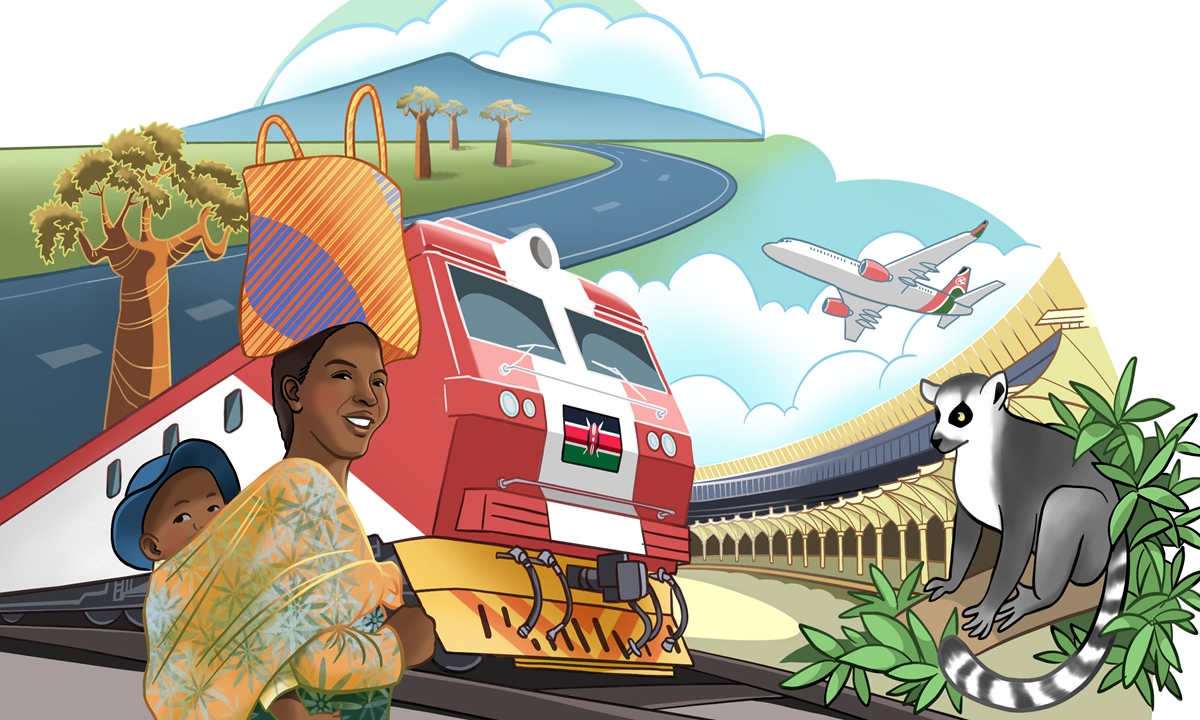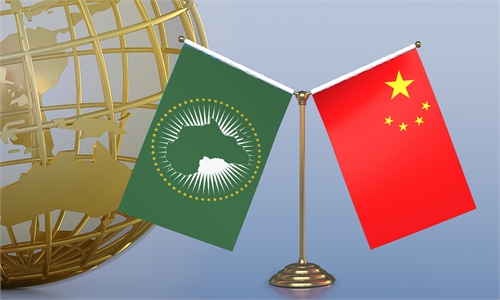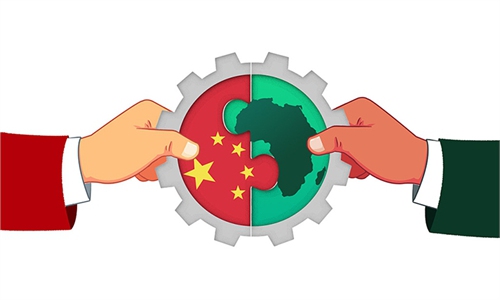
Illustration: Liu Rui/GT
Some people might avoid going to Africa due to fears or misconceptions. However, I tell people that once they actually go there, they will fall in love with the place. Before 1999, I never imagined that I would go to Africa. Like many people, I thought Africa was impoverished, backward and plagued by constant conflict. However, in 2000, by a twist of fate, I found myself in Ghana, a West African country. This was where I began my entrepreneurial journey in Africa. It's been 24 years now. This experience has transformed my view of Africa. I arrived at this unfamiliar place not knowing a soul, but now I have become deeply familiar with this place and I have developed a profound affection for it.I have witnessed the increasingly close economic and trade relations between China and Africa. In 2000, the trade volume between China and Africa was only $10.6 billion; by 2023, it had reached a historic peak of $282.1 billion. For 15 consecutive years, China has been Africa's largest trading partner. The economic integration between China and Africa is becoming deeper.
In the early days, we focused on building infrastructure projects in Africa. During this period, the work was mainly limited to engineering tasks, and there was no involvement in the operational aspects of these projects. In recent years, however, Chinese companies have taken on projects like the Addis Ababa-Djibouti Railway and have been involved in its operation. This is a positive development. Teaching a person to fish is better than giving them a fish; if we work together through challenges, our bond will naturally grow stronger.
The pursuit of development is a universal agreement across all African countries. This consensus has become a powerful force, indicating that regardless of who is in power, prioritizing socioeconomic development remains a top priority. In Africa, Chinese private enterprises significantly outnumber state-owned ones. However, because state-owned enterprises often undertake larger projects, there is a common misconception that Chinese businesses in Africa are primarily involved in mining or large-scale contracting. In reality, most Chinese private enterprises and individuals focus on trade and running retail businesses.
Overall, Chinese private enterprises and individuals in Africa are gradually upgrading and transforming their industries. However, they frequently encounter a challenging external public opinion environment.
For instance, when Chinese oil companies develop oil fields in Africa, some Western media label it as "exploitation." Similarly, when our mining companies purchase mines but have not yet begun extraction, they are already accused of "environmental destruction." These criticisms are often part of a "thief crying thief" tactic used by certain countries to discredit China. In reality, Western countries are significantly involved in and exert control over key economic sectors and infrastructure in Africa, such as power supply, port operations, road and rail concessions, airline operations, and financial services, both overtly and covertly.
Despite this, we should continue to actively engage in Africa's economic development. Africa's overall development level is relatively low, and many Africans are not very familiar with foreign brands. This situation provides an opportunity for new products entering the African market to quickly establish their brand and attract consumers. Chinese products, known for their affordability and quality, are well-suited to meet the everyday needs of the African population.
For Chinese companies entering Africa, it is essential to have a well-planned strategy for market and brand development. Given that Africa comprises 54 countries, it's important to choose the markets that best fit the company's goals. Each African country has its own culture and consumer habits, so brands need to be mindful of localization. This could involve establishing different localized brands for various countries or creating regional brands, as products can move more freely among member states due to regional integration agreements.
While brand stories are important, they should be simple and easy to remember, without being overly complex or laden with excessive meaning. For many Africans, the primary concerns are product quality, cost-effectiveness and after-sales service - factors that have remained consistently important over the years.
The author is Vice Chairman of the Chinese-African People's Friendship Association, an advisor to the President of Djibouti, and Chairman of Touchroad International Holdings Group. opinion@globaltimes.com.cn


